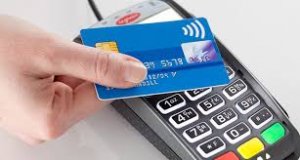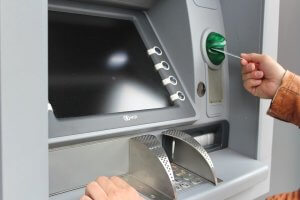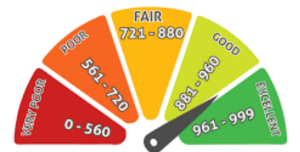Should you withdraw money from a credit card?
Many people are clueless about the differences between withdrawing money from an ATM with a debit card or a credit card. Credit cards usually have a fee for any cash withdrawals made as well as some other types of transactions.
In this guide, we are going to run through when charges will be applied and how you can go about keeping your costs down.
Can you withdraw money from a credit card?

Yes, it is possible to withdraw using a credit card. However, it can be very pricey to do so, thus, it is advised to avoid doing it pretty much every circumstance. Of course, in the case of an emergency, you shouldn’t avoid doing so just because of the charge.
An example of a charge you could expect may be, say you withdraw £150. This could come with a fee of £8.90, which is rather a lot a money to lose out on and gain nothing from.
If you are needing to withdraw money as a matter of urgency, it is a lot cheaper to use a debit card as this is free. If this is not possible, you should use an interest-free overdraft instead. If you need money quickly, you could also look at taking out a guarantor loan – it doesn’t matter how good or bad your credit rating is, you will be able to get the money you need quickly.
How can you withdraw cash using a credit card?

You will be able to obtain cash on most credit cards in the following way:
- Using a cash machine (ATM)
- Going to your bank branch to withdraw over the counter (must be the provider of the credit cards bank)
- Getting cashback in a shop (a lot of the time, this is exclusive to debit cards but some shops do allow credit cards).
Is there a way to withdraw cash from a credit card without paying a fee?
Yes, there is a way to take money out with a credit card and avoid a fee. In fact, some providers do not charge you a fee for withdrawing money using cred card. However, if this is the case you will have to pay interest on the amount that you withdraw.
If you would rather pay interest than a fee, you should shop around for credit card providers which do not charge the fee rather than just going for the first deal you see with your current bank.
What is a cash advance?
Withdrawing cash on a credit card is also known as a cash advance. Be aware that other things also count as a cash advance to many providers including:
- Buying travel money and traveller’s cheques
- Paying your utility bills
- Betting or gambling, including the purchase of lottery tickets or trips to casinos
- Making a payment on your mortgage
- Buying coupons or gift vouchers
If you are unsure, you should ask your credit card provider what they personally will count as a cash advance because you will be charged the same fees for whatever they are as you would for withdrawing cash.
A cash advance can affect your credit score

Cash advances will come up on your credit record. This means that any future lenders will see this when you are going to apply for a credit card, a mortgage or a loan, for example.
Now, it is true that seeing a cash advance on your record will not necessarily put a lender off lending to you. However, it may affect the rates they offer you.
If you are planning on applying for a long-term or large loan or a mortgage any time soon, it is wise to avoid cash advances on your card to ensure that you do not run a risk of receiving a bad rate or being rejected altogether by lenders.



